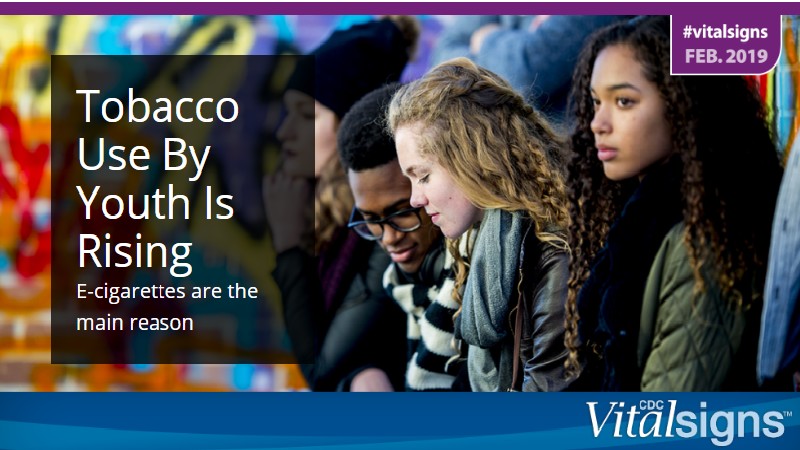About 9 in 10 adults agree that teen suicide is preventable and that parents should have open discussions with their children
Parents often struggle with how, why and when to raise controversial topics with their teenagers. Teen suicide is no different. May is Mental Health Awareness month and the dialogue about the suicide risk – and mental health – of teenagers has been further fueled by the recently released Netflix series 13 Reasons Why, which tells the story of a high school student who has died by suicide after a series of events, many of which were perpetrated by her classmates and friends.
Almost 9 in 10 U.S. adults (89%) believe that teen suicide rates are climbing. And, nearly one-third of parents with teens today (31%) say their child knows someone personally who has attempted or died by suicide (over four times higher than the 7% of parents in general). That said, the vast majority of Americans feel teen suicide is preventable – and that teen-parent dialogue, education, support groups, and public awareness campaigns are all key parts of the solution. But, some parents admit they often struggle with how to raise the topic of suicide with their own teenagers.
These are some of the results of The Harris Poll® of 2,057 U.S. adults aged 18+ surveyed online between May 24-26, 2017, including 248 parents of teenagers ages 13-17. Complete results of the study can be found here.
Suicide Prevention: It Takes a Village
Nearly 9 in 10 Americans (88%) believe that teen suicide can be prevented, and is a shared responsibility that requires greater support, education, and dialogue for both teens and their parents:
- The Parent’s Role: The majority (58%) of parents with teenagers worry about their children’s mental health at times, but more than 1 in 4 (28%) admit they don’t really know how to talk to their kids about it. And, almost one-fifth (18%) is concerned that raising the topic of suicide with their teens will only put the idea in their heads. That said, almost universally, Americans believe parents of teenagers need to have open conversations with their children about suicide (94%). And beyond dialogue, a slight majority thinks there should be closer supervision of kids’ social media activity (55%).
- The School’s Role: Most adults believe that education about teen suicide prevention is the best way to reduce the number of teens who attempt or die by suicide, including education for students (74%), parents (73%) and teachers (67%). This education could be provided, at least in part, by schools. Currently, less than 4 in 10 parents of teens (37%) feel that schools are providing enough support to teens who may be dealing with mental health issues.
- The Community’s Role: Alongside greater education, Americans identify many other resources that would help reduce the numbers of teens who attempt suicide, for example: creating more support groups for teens (66%); increasing public awareness campaigns about suicide prevention (62%); and offering easier access to psychotherapy for teens (55%).
13 Reasons Why: Part of the Solution?
Mental health issues (88%) and being bullied (85%) are perceived to be the biggest risk factors when it comes to teenage suicide, but few adults (11%) believe that a show like 13 Reasons Why will put teens at greater risk.
- Just over half of U.S. adults (51%) have heard of the Netflix series 13 Reasons Why, rising to 70% among younger adults (ages 18-34), 69% of adults who self-identify as LGBT, 59% among parents of kids under 18, and 57% of people who know someone who has attempted or died by suicide.
- Few people overall (15%), but over 1 in 4 parents with teenagers (26%), have watched all or parts of the series. Among adults who have not watched it, only 23% plan to do so in the future, while 43% are undecided. Far more adults who have been personally exposed to suicide (and know someone who has considered, attempted or died by suicide) have either watched the show (19% vs. 8%) or plan to watch it (22% vs. 16%).
- Few adults (11%) are concerned that a TV show like 13 Reasons Why will put teens at greater risk of suicide. In fact, the majority (54%) hopes it sparks important conversations and aids in prevention.
- Almost everyone who has seen 13 Reasons Why considers it acceptable for teens to watch (95%), even without parental or adult supervision (61%). Adults who have been personally exposed to suicide – and those who have actually watched the series – are significantly more likely to see the potential benefits (for example, greater dialogue, help in prevention).
- Approximately 3 in 10 parents with teens (28%) say their child’s school has taken some action, such as offered counseling services, sent a letter or email home, started a suicide prevention program or held a PTA meeting in response to 13 Reasons Why.
To see other recent Harris Polls, please visit our website, TheHarrisPoll.com.
Want Harris Polls delivered directly to your inbox? Click here!
Methodology
This Harris Poll was conducted online, in English, within the United States between May 24 and May 26, 2017, among 2,057 adults aged 18+, of whom, 248 are parents of teenagers ages 13-17. Figures for age, sex, race/ethnicity, education, region and household income were weighted where necessary to bring them into line with their actual proportions in the population. Propensity score weighting was also used to adjust for respondents’ propensity to be online.
All sample surveys and polls, whether or not they use probability sampling, are subject to multiple sources of error which are most often not possible to quantify or estimate, including sampling error, coverage error, error associated with nonresponse, error associated with question wording and response options, and post-survey weighting and adjustments. Therefore, The Harris Poll avoids the words “margin of error” as they are misleading. All that can be calculated are different possible sampling errors with different probabilities for pure, unweighted, random samples with 100% response rates. These are only theoretical because no published polls come close to this ideal.
Respondents for this survey were selected from among those who have agreed to participate in Harris Poll surveys. The data have been weighted to reflect the composition of the adult population. Because the sample is based on those who agreed to participate in our panel, no estimates of theoretical sampling error can be calculated.
These statements conform to the principles of disclosure of the National Council on Public Polls.
The results of this Harris Poll may not be used in advertising, marketing or promotion without the prior written permission of The Harris Poll.
Product and brand names are trademarks or registered trademarks of their respective owners.
The Harris Poll® #18, May 31, 2017
By Sylvia Ziegler, Client Director, The Harris Poll
About The Harris Poll®
Begun in 1963, The Harris Poll is one of the longest running surveys measuring public opinion in the U.S. and is highly regarded throughout the world. The nationally representative polls, conducted primarily online, measure the knowledge, opinions, behaviors, and motivations of the general public. New and trended polls on a wide variety of subjects including politics, the economy, healthcare, foreign affairs, science and technology, sports and entertainment, and lifestyles are published weekly. For more information, or to see other recent polls, please visit our new website, TheHarrisPoll.com.










